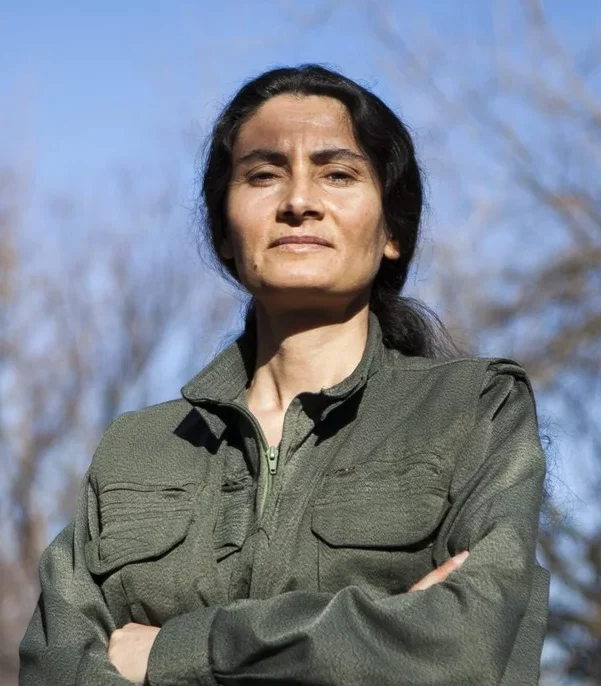
Jin, Jiyan, Azadi — Women, Life, Freedom!
This contribution is part of the Kurdish Peace Institute’s First Person series. Through this series, the Kurdish Peace Institute publishes commentaries from relevant public figures on current events in order to advance understanding of regional issues and actors. These commentaries are intended to provide our audiences with exclusive insight into how different individuals and groups in the region understand ongoing developments.
When ISIS attacked Iraq and Syria, unprecedented women’s resistance broke their reign of terror. Today, as war and autocracy are on the rise around the world, women’s resistance in Iran once again shows the way to peace and freedom.
The murder of Jina Amini by the Iranian regime’s so-called ‘morality police’ was no isolated incident. Kurds and women in our lands are slaughtered every day by dictators and terrorists and others who share or abet their poisonous ideologies.
What is unprecedented is the uprising in her name, sparked by the women of eastern Kurdistan and now spreading like wildfire across Iran.
Right now, men and women are standing together for a woman’s right to live on her own terms, free from the deadly interference of patriarchy, state, and religion. Persians, Azeris, and other peoples of Iran are protesting with Kurds against a government that derives its power from ethnic and religious division. A society is facing tanks and bullets to defend women, life and freedom—jin, jiyan, azadi.
There could be no greater honor for our movement than to see these three words become a rallying cry for a women-led peoples’ resistance to the violence of patriarchy and the nation-state.
We say “jin, jiyan, azadi” because we believe that society cannot be free from any other form of oppression and domination if women are not free, and that women must organize and defend themselves to achieve this.
These commitments are the result of our struggle as Kurdish women resisting the Turkish state’s attempts to destroy our people. But we do not believe that they are relevant to Kurds alone. We know that when women of our region unite on this basis, they can make important contributions to the cause of international peace and freedom.
In North and East Syria, Arab, Syriac-Assyrian, Yezidi, and Armenian women have joined Kurdish women to resist ISIS terror, Turkish occupation, and male violence, inspired by our philosophy of women’s liberation. Their unity and their insistence on liberation from all forces that kill and oppress women is perhaps the Rojava Revolution’s greatest strength.
All people who are safer and more secure today because of the defeat of ISIS are in debt to these women. If the women’s resistance in East Kurdistan and Iran succeeds, the benefits will be perhaps even greater.
Not only will the peoples of Iran be free to determine their future, but women and oppressed peoples everywhere will be emboldened to challenge the forces that bring conflict and repression to our region.
People in Turkey and North Kurdistan are already watching the situation closely, as the AKP-MHP regime intensifies its attacks on Kurds, women, workers, religious minorities, and all who oppose its rule in a last-ditch effort to remain in power. Developments in Iran ought to show all opposed to AKP-MHP rule that the best weapon against dictatorship is insistence on women’s freedom, the solidarity of peoples, and democratization—nothing less.
The international community must also pay attention. For decades, the states that interfere in our region have pursued policies of war and economic deprivation that harm women most of all. Western sanctions on Iran leave the elite men who rule unscathed while plunging women and workers into poverty and intensifying the economic exploitation of East Kurdistan. When Turkey kills Kurdish women who led the fight against ISIS in Syria, it does so with Western military technology.
Such a status quo is not only untenable—it is dangerous and short-sighted. Regimes that are enemies of women, life and freedom within their borders all too often metastasize into enemies of their neighbors and of global security. On the other hand, when women resist—and women will always resist—they demand only that they be allowed to live in peace, free from oppression.
From Kurdistan to Syria to Iran and beyond, we will always stand on the side of women demanding freedom for themselves and their societies. Our resistance over the past 40 years shows what a women’s revolution can achieve despite attacks from all sides. If women everywhere can build upon these achievements in the decades to come, humanity will be better off for it.





